Speaker
Description
Hadron therapy is a treatment method that utilizes the energy deposition of protons or heavier ions to concentrate the dose delivered to a patient during the treatment of a malignant tumor. Proton Computed Tomography (pCT) is a novel imaging modality used to reconstruct the relative stopping power (RSP) of an object of interest by tracking single proton trajectories and measuring their residual energy. The Bergen pCT collaboration is constructing a clinical prototype detector capable of both tracking and measuring the energy deposition of ions to minimize uncertainty in proton treatment planning. The pCT detector designed by the Bergen pCT collaboration is a high granularity Digital Tracking Calorimeter (DTC), where the first two layers will be used to obtain positional information of the incoming particle and act as tracking layers. The remainder of the detector will act as a calorimeter. The tracking layers will utilize a carrier made of ~300 μm thick carbon fleece, this is to minimize scattering effects. The DTC will be a 41 layered sandwich structure composed of ALPIDE CMOS sensor chips, which will act as the active part, mounted on 3.5 mm thick aluminum carrier plates, acting as the absorber material. This work will present the implementation of the design, as well as the mechanical and electrical layout of the Bergen pCT. In addition, data from multiple beam experiments will be presented. This includes data taken with electron and hadron beams at various energies.
| Primary experiment | Bergen pCT Collaboration |
|---|
